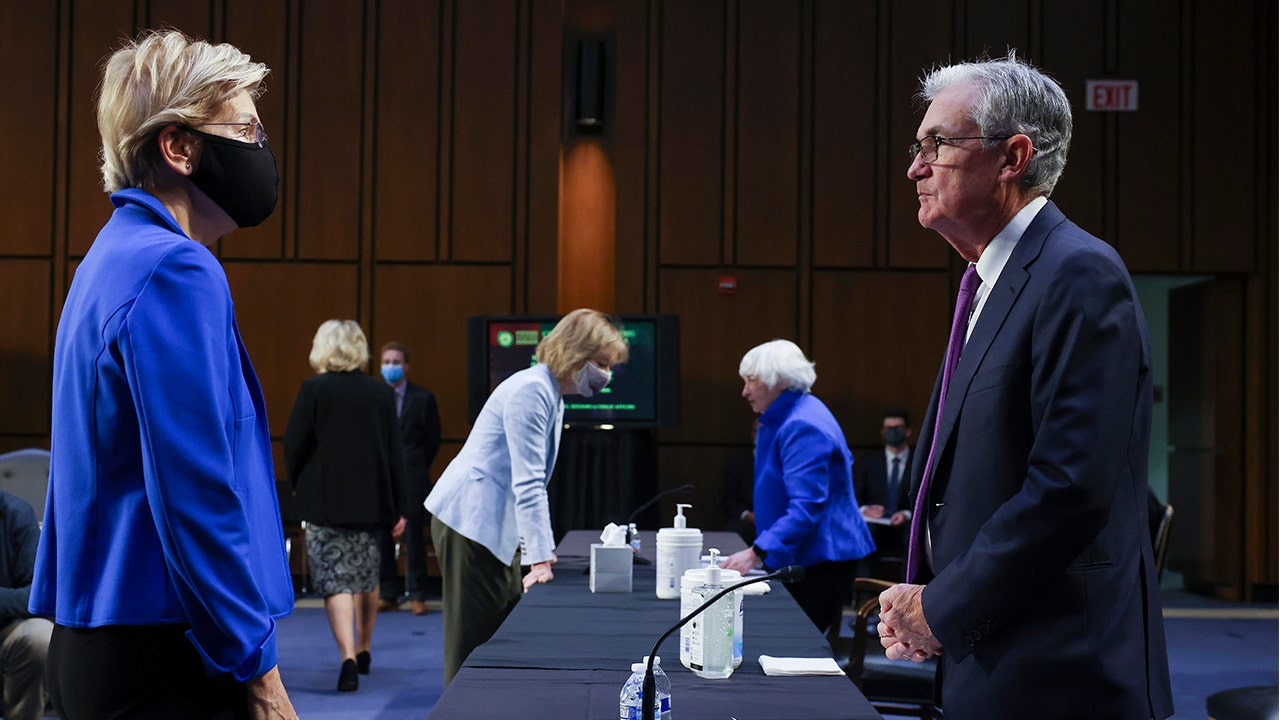Scott Crowe, chief investment strategist at CenterSquare Investment Management, weighs in on expected action by the Federal Reserve, which includes several rate hikes this year.
Sen. Elizabeth Warren called on the Federal Reserve in a Monday letter to release more information about financial trades made by several top officials at the onset of the coronavirus pandemic, when the central bank was pumping trillions of dollars into the U.S. economy.
The Massachusetts Democrat, who sits on the powerful Senate Banking Committee, made the request after a New York Times report revealed that Richard Clarida, the Fed’s departing vice chair, failed to initially disclose the extent of a financial transaction he made in early 2020, suggesting that he was actively trading just days before Chairman Jerome Powell suggested the central bank may swoop in to prop up in the economy.
FED EYES FASTER INTEREST RATE LIFTOFF, BALANCE SHEET REDUCTION
“I am deeply concerned that your continued refusal to release information about Fed officials’ trading is at odds with your stated commitment to address the scandal ‘forthrightly and transparently’ and that, particularly in light of the new report, it raises suspicions that the Fed may be failing to disclose the full scope of the scandal to the public,” Warren wrote in the letter.

Sen. Elizabeth Warren, D-Mass., talks to Federal Reserve Chairman Jerome Powell before a Senate Banking, Housing and Urban Affairs Committee hearing on the CARES Act on Capitol Hill, Tuesday, Sept. 28, 2021 in Washington. (Kevin Dietsch/Pool via AP / AP Newsroom)
Clarida, whose term is set to end Jan. 31, had already drawn scrutiny for moving between $1 million and $5 million out of a bond fund into a stock fund on Feb. 27, 2020, one day before Powell pledged that the Fed would take whatever action was needed to shore up the economy. But Clarida later revealed that he had sold between $1 million and $5 million in the same stock fund three days prior to buying it; he later said it was an “inadvertent error.”
The revelation marked the latest in a string of ethics scandals plaguing the central bank after two Fed policymakers – Robert Kaplan, president of the Federal Reserve Bank of Dallas, and Eric Rosengren, president of the Federal Reserve Bank of Boston – bought and sold stocks and real estate-tied assets last year as the central bank undertook aggressive policy action to bolster the economy
Kaplan traded millions of dollars of stock in companies, including Apple, Amazon and Google, while Rosengren traded in stocks and real estate investment trusts, according to financial disclosure forms. Both men resigned following the controversy (although Rosengren cited health reasons for his early departure).
In the wake of the trading scandal, Powell acknowledged the U.S. central bank’s current rules dictating what its officials are allowed to invest in and trade are “not adequate” and need to be updated. The rules, which ban senior officials from owning bank stocks, limit trading around monetary policy meetings and warn against any activity that could suggest a conflict of interest, are crucial to ensuring the public’s trust in the U.S. central bank, Powell said.

In this Sept. 30, 2021, file photo, Federal Reserve Chairman Jerome Powell testifies during a House Financial Services Committee hearing on Capitol Hill in Washington. (Sarah Silbiger/Pool Photo via AP, File / Associated Press)
“We need to make changes, and we’re going to do that as a consequence of this,” Powell told reporters in September following the Fed’s two-day policy-setting meeting. “No one is happy about this.”
Warren has also called on the Securities and Exchange Commission to investigate the Fed officials’ trading to determine if it violated insider trading rules and had previously asked the central bank to disclose all ethics communications provided to officials in 2020 and 2021.
GET FOX BUSINESS ON THE GO BY CLICKING HERE
“As new details about the trading scandal are uncovered, your continued refusal to release this information severely compounds concerns about the Fed’s lack of transparency and your commitment to fully and honestly addressing the Fed’s broken ethics culture,” she wrote.
Warren requested a response by Jan. 17.
